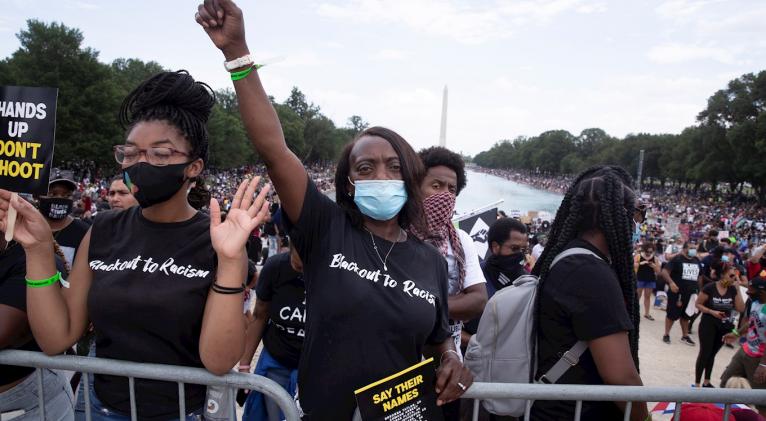Lancet studies show racism poses major public health threat to millions worldwide
especiales

London, December 10 (RHC)-- "Racism, xenophobia, and discrimination are fundamental determinants of health globally." That's the conclusion of a series of research papers published Friday in the eminent British medical journal The Lancet examining how "historic systems and structures of power and oppression and discriminatory ideologies have shaped policy and practice today."
The studies show that racial discrimination "leads to poorer health outcomes and quality of care" while converging "with systems of oppression, including those based on age, gender, and socioeconomic status to exacerbate or mitigate experiences of discrimination."
In a study of over two million pregnancies across 20 high-income and middle-income countries, neonatal death, stillbirth, and preterm delivery were more likely among babies born to Black, Hispanic, and South Asian women.
Another shows how theft of land and destruction of traditional practices of Indigenous Brazilians are associated with adverse cardiometabolic outcomes. Among people diagnosed with brain tumors in the USA, Black patients were more likely to have recommendations against surgical resection, regardless of clinical, demographic, and socioeconomic factors, suggesting bias in clinical decision making.
In Australia, everyday discrimination contributes to half the burden of psychological distress experienced by Aboriginal and Torres Strait Islander peoples. The logical conclusion is that racism and discrimination must be central concerns—for practitioners, researchers, and institutions—to advance health equity.
"The core problem is an inequality in power, historically rooted but still operating today," The Lancet asserts. "It shapes environments and opportunities."
In order to combat racism in public health, the studies recommend:
Increasing cultural safety and diversity in the healthcare workforce;
Working with affected communities to achieve healthcare systems that are more flexible, accessible, and welcoming; and Strengthening Indigenous self-determination and land rights.
"Racism and xenophobia exist in every modern society and have profound effects on the health of disadvantaged people," University College of London researcher Delan Devakumar, lead author of the papers, told The Guardian.
"Until racism and xenophobia are universally recognized as significant drivers of determinants of health," Devakumar added, "the root causes of discrimination will remain in the shadows and continue to cause and exacerbate health inequities."














Add new comment